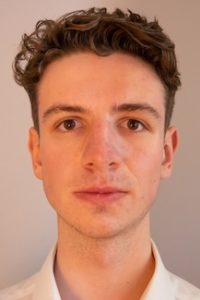ESR 13


James Broadhead
Project: VLC-enabled Energy Disaggregation
Host: TU Delft (Netherlands)
PhD: TU Delft (Netherlands)
Supervisor: Dr. P. Pawełczak
Originally from the UK, my interest in engineering started whilst I was studying for an undergraduate degree in physics at the University of Oxford. During my time at Oxford I was inspired to pursue the idea of communication through a project with partners at Airbus, where I worked on designing subsystems for an aerobot mission.
Communication is fascinating, both from an engineering perspective and in terms of its ability to connect things and people. Technology should empower us to better society; one only has to look at the profound ways in which the internet has shaped our modern world to realise the immense power of communication and computer networking. Having been inspired by the potential of communication engineering, I then decided to undertake an MSc at the University of Leeds in Digital Communications Networks. This then led me to my current position as a PhD student in Embedded and Networked Systems at TU Delft.
Outside of academia I’m a keen photographer, I enjoy middle distance running, and I love creative writing.
We know that buildings consume vast amounts of energy. Every light that you switch on and every laptop that’s plugged in is more energy consumed. Whilst most of this consumption is necessary, a significant amount is wasted; when people forget to turn the light off or unplug their devices.
My project focuses on designing small sensors that can be deployed in the built environment that allow us to collect information about energy usage. This information will then empower building mangers with the understanding needed to improve energy efficiency. Since batteries can cause a number of problems (they often need to be replaced and can be difficult to recycle) we want to create small sensors that are ‘battery-free’. To achieve this we use a technique called ‘intermittent computing’ that looks to strategically save data in the case of power failure.
These small battery-free devices will then be distributed throughout the built environment and communicate with one another to give us information about effective energy use. As part of the project I will look to provide theoretical understanding to these small sensor networks and start to implement them in practice.
Broadhead, James Scott; Pawełczak, Przemysław (July 2021)
“Data Freshness in Mixed-Memory Intermittently-Powered Systems”
IEEE International Symposium on Information Theory (ISIT 2021), Melbourne, Australia (held virtual), 12-20 July 2021
Broadhead, James Scott; Pawełczak, Przemysław (September 2020)
“Position Paper: Why Intermittent Computing Could Unlock Low-Power Visible Light Communication”
“Light Up the IoT” – Workshop Co-located with ACM MobiCom 2020, 25 September 2020.